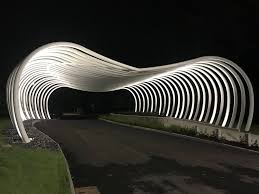
It attracted a huge Microsoft development. It built parks. Its population grew.
The reaction by the city’s leaders has been panic.
The reason? Developers moved in near the coming Microsoft offices and built housing for upper-income people who might work there. The white gentrification of the west side, starting at Georgia Tech, has accelerated. Until recently this was the heart of the ghetto, and of the Atlanta machine’s political strength.
The response has been two-fold. First, Atlanta isn’t really fighting Republicans’ efforts to extract Buckhead, with 20% of the city’s population and 40% of its tax base, from the city. Buckhead is nearly all-white. They will complain, but they will let it go.

I think this plan is doomed. Poor people are moving south to areas around and just outside I-285, the city’s perimeter highway. Poor people have cars, even if they’re crappy cars. Low-income jobs are all outside the Perimeter. So poor folk are moving to Austell, to East Point, to Forest Park and to South DeKalb. The MARTA rail system, designed to move people from outer suburbs to central city jobs, has been made obsolete by the business community’s march north toward Alpharetta. Today’s commuting pattern runs north to south, along the Interstates.
Once the current housing cycle busts, however, it’s immigrants who will move into the new apartments. That’s what happened in Houston over 40 years ago, where the 1970s “hot young singles” developments became the Gulfton Ghetto.

Young whites who believed in the hope of the city and gentrified neighborhoods like Kirkwood, Edgewood, and East Atlanta over the last decade will be out of luck. There’s too much political invested in the racial status quo.









